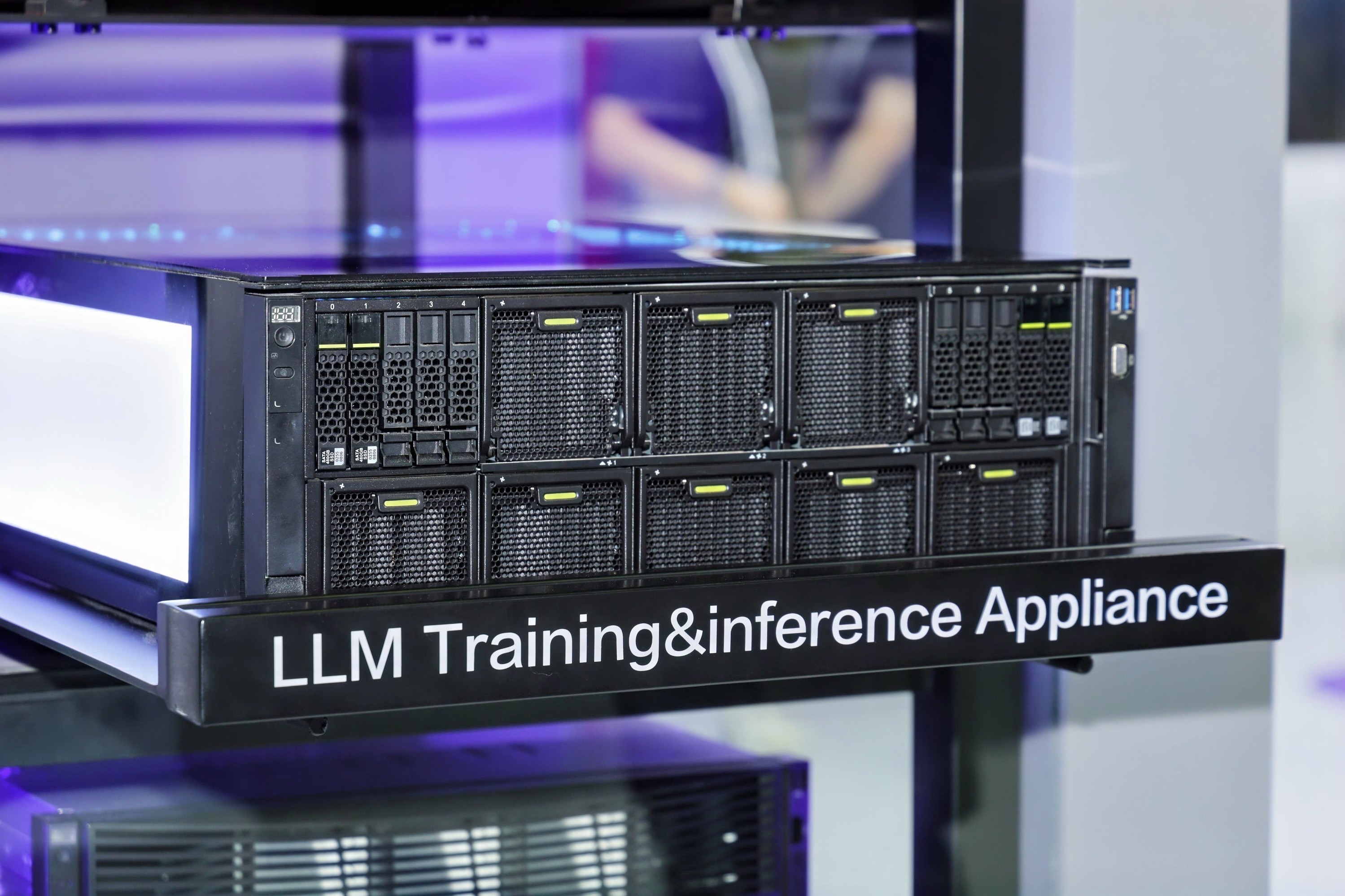How Large Language Models (LLMs) Can Impact Your Business Efficiency
In this technology-driven era, numerous artificial intelligence applications are transforming our interactions with computers. Artificial intelligence systems are now designed to understand and interpret human-written content, and they now have the capabilities to generate human-like text on a variety of advanced topics in various styles and languages. Large Language Models are the key foundations of such AI systems and play a major role in different applications across various sectors.
This article discusses LLM's meaning, how they work, what their applications are, and how they can be used to improve your business efficiency.
What are Large Language Models (LLMs)?
An LLM model is a type of deep learning technique that uses and analyses large sets of data to interpret and comprehend text and then eventually produce and predict new text based on all that data analysis. An LLM is an AI-generative tool that uses data for training and inference. During this phase, the LLM learns the capabilities of deriving relationships between texts and then generates new text based on its training and analysis.
LLMs represent an advanced stage of the artificial intelligence concept model, and their deployment in various sectors and industries depicts their versatile applications in today’s technology-driven world.
Applications of LLMs
An LLM large language model has vast applications, especially in the business world, facilitating smoother workflows and fostering smarter decision making. Some of the LLM applications include:
Office And Business
The most beneficial application of LLMs in the business world is in business automation. From automating data analysis, transcribing meetings, to managing inventory systems, LLMs can streamline almost all business operations. Large language models can manage workflows and task management to improve productivity and efficiency. LLMs can also facilitate communcations and coordinations among the team members, resulting in improved team collaboration.
Moreover, LLMs have the capability to replace repetitive tasks like documents handling and data managements. As compared to manual data managements, LLMs can improve operations by facilitating faster and accurate data handling with almost negligible chances of errors. Therefore, LLMs application in the office and business realms can promote enhanced business operations with greater consistency and readability.
Education
In the field of education, LLM models can help save costs and time for educators. They can help transform interactive learning through various intelligent and immersive educational solutions. AI LLM technologies like generative questions and answers, voice recognition, voice synthesis, and analytics services can facilitate learning and teaching. Moreover, LLMs also offer scalable learning solutions for the students for enhanced learning experiences.
Customer Service
In customer service, LLMs offer customised assistance for intelligent customer interactions. Virtual assistants and chatbots are some large language models examples that are able to offer round-the-clock support service to customers. Businesses can enjoy improved efficiency and decreased costs by saving the amount for hiring customer support staff. Such LLMs can answer questions instantly and respond to customer queries in minimum time. Therefore, this can lead to increased customer satisfaction and they feel valued. With such prompt and engaging response coming from businesses, customers become loyal, resulting in better growth and expansion for your business.
Gaming
LLMs also have significant applications in the gaming sector. They can offer customised solutions for your gaming characters to make them appear more human-like with memory and emotional intelligence. You can customise your NPCs according to your requirements to provide an enriching and immersive gaming experience to your users.
E-Commerce
Large language models offer lucrative applications in the e-commerce field through customer queries automation and automated, swift responses. This helps reduce the manual support needed for these operations, resulting in cost and time efficiency. They an also offer a more engaged and personalised shopping experience to customers. With personal recommendations based on the user’s past shopping experiences, customer satisfaction and loyalty increases, thereby boosting sales and profits.
Cybersecurity
LLMs have also shown successful applications in the cybersecurity sectors. They can help automate routine security tasks and detect potential risks with increased accuracy. Since an LLM model keeps on learning by utilising and analysing data over time, it can show improved accuracy in detecting threats and helping in creating the appropriate security strategies.
Supply Chain Management
LLMs applications in the supply chain management sector can help streamline the processes and improve inventory management. They can facilitate smoother operations and promote better communications between distributors and suppliers. All these processes can help improve efficiency and reduce delays for businesses.
Role of LLMs in Business
Depending on the nature of any business, an LLM model can be of significant advantage to optimise business operations, increase business reach, and improve customer relationships. There are several capabilities of LLM models that can play a vital role in improved business operations and efficiency.
● LLMs have the capability of advanced natural language processing (NLP) that can facilitate enhanced data search and retrieval within the organisations’ data repositories. The resultant structured data can then be used for effective data analysis.
● LLMs can extract relevant content and information by understanding and analysing the context of data. The business can then utilise this information to devise their financial and investment strategies.
● LLMs can analyse user behaviour and past trends to generate persoanlised recommendations that can allow for more enhanced user engagement and experiences.
● LLMs can help businesses in predicting and forecasting future outcomes by applying predictive analysis on historical data and trends. They can also help predict potential risks and challenges, thus, preparing organisations to act proactively. Businesses can address the challenges and take advantage of any impending opportunities for improved business efficiency and performace.
● LLMs allow for continuous learning and improvement by adapting to evolving data patterns. This increases their efficiency and accuracy over time, allowing companies to leverage their technological insights and enhanced predictions for increased business growth and performance.
Why Choose iFLYTEK Spark LLM For Your Business?
Whatever kind of business model you have, you can benefit from the comprehensive benefits that large language models have to offer. iFLYTEK offers its premium Spark LLM model that boasts next-generation solution for multi-lingual, multi-modal, and infinitely customized interactions. Choose Spark LLM for your business because of the following reasons:
● Spark LLM has the capability to support knowledge construction from multi-source heterogeneous documents.
● It can accurately retrieve knowledge and data in cross-domain scenarios and offer controlled responses.
● Spark LLM offers increased code repository capacity with expanded application ecologies.
● Spark LLM also allows for multiple AI agents collaboration.
● Spark LLM offers a cloud-based service with a standard API interface, making it a fast and reliable solution.
● Spark LLM is deployed in your local premises, thus ensuring complete data privacy and security.
● It also offer industry-specifc customisation tailored to your needs.
● Spark LLM’s advanced computational powers can be leveraged to create collaborative training models, based on a custom language that will be created from scratch.
● Spark LLM is a plug-and-play solution with pre-tuned hardware and software that can be connected to a power source and it would be up and running in no time. No additional setup or installations required.
iFLYTEK’s Spark LLM is a revolutionary large language model that can help you elevate your business to the next level. Contact iFLYTEK today to see how your business can benefit from its comprehensive AI services.
More News & Events

iFLYTEK Showcases Spark Large Model All-in-One Server at GITEX 2025, Empowering Digital Transformation in the Middle East
11/18/2025
How An Auto Subtitle Generator Is Shaping The Future Of Real-Time Video Captioning
08/27/2024
iFLYTEK Joins Techsauce Global Summit 2024, Showcasing Cutting-Edge AI Innovations and Propelling Startups onto the Global Stage
08/22/2024Contact Us
Contact Us
Mobile Trial
Experience our cutting-edge AI capabilities on your mobile device, and start the AI journey today!

Technical Support
Have difficulties integrate with our APIs?
Suggestion and Feedback
Contribute your ideas to improve iFLYTEK Open Platform?
